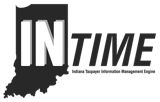Where Are Trusts Taxed?
October 1, 2019 Author: Joe Paulson, CPA, Partner, Compass Pointe CPAs

The taxing of trusts (fiduciary income tax) can be very confusing. There are countless forms and ways to structure trusts. Countless way to direct assets to one beneficiary or another. Various vehicles to keep assets within the trust, generating income, or push income out to beneficiaries on a regular basis, thus taxed at the beneficiary level.
Included in all of this confusion can be one simple (or what appears to be simple) question: Where is the income taxed at a state level? The short answer is: It depends on the state and the law in that state. The state law under which the trust was established, where the trustee resides, where the assets reside, and where the beneficiary lives are all factors to consider. The confusion that these simple questions create moved one state and trust case to the Supreme Court. In North Carolina Department of Revenue vs Kimberley Rice Kaestner 1992 Family Trust, the parties asked the Supreme Court to weigh in on the state nexus of the trust assets. The beneficiary lives in North Carolina. The trustee lives in and administers the trust from Connecticut.
It has long been established that distributions of trust income to a beneficiary are taxable in the beneficiary’s state of residence. The case before the Supreme Court was particularly focused on the retained income in the trust.
The court made its determination in July 2019. The Court cited previous rulings, stating that there must be a sufficient connection between an asset and a state before the state can tax the asset. There is a distinction made between a tangible asset (i.e. real estate, etc.) and an intangible asset (i.e. securities, mutual funds, etc.). A tangible asset is a simple example in that it has a physical location. The nexus of an intangible asset, however, is more difficult to determine. The Court maintained other precedent by stating that, for tangible or intangible assets held in trust, the income not yet distributed to the beneficiary from those assets be taxed by the state where the trustee administers the trust. The intangible assets and income distributed to the beneficiary are taxed by the state where the beneficiary resides.
If you have any questions regarding your trust, please reach out and let us know how we can help.
Let's Have A Virtual Chat
Compass Pointe CPAs is taking precautions to help protect our clients and staff during this pandemic. Please be mindful of others and avoid coming into our office if you are ill or have been exposed to someone who is ill or tested positive for the COVID-19 virus.
For your health and safety, we schedule convenient virtual appointments during our office hours. Appointments with our partners are subject to their availability.
Monday through Thursday, from 8 a.m. to 6 p.m.
Fridays from 8 a.m. to Noon (during June and July)
Saturdays from 8 a.m. to noon








